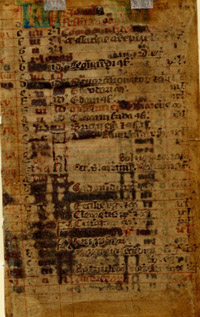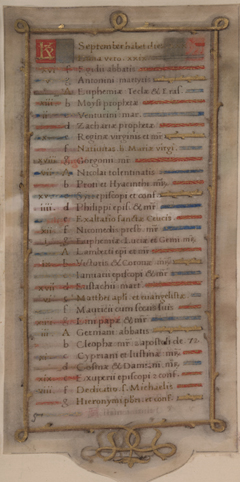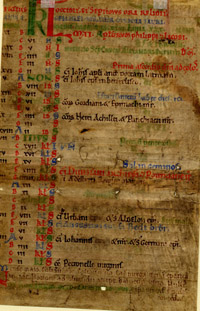Resources and Services
Jan Coffman Art on Display in Bookmark Cafe
Jan L Coffman, M Ed
Art Photography
jcoffman07@yahoo.com
“It is in the digital world that Jan Coffman’s creative gifts and foresight have come together. A comfortable chair, computer software and stylus pen allow the warm, sensitive soul of a painter, steady hand of a sketch-maker and keen eye of a photographer to converge. Starting with photographs, Coffman brings obscured details to light in some and makes the origins of others unrecognizable, imparting a hand-drawn or painted quality; the outcome is innovative and no less inspired than a print made by applying damp brush strokes to physical paper.”
Columbia Tribune, Columbia, Missouri
I love to walk in nature settings. That is where I find my paintings. I call my paintings contemporary realism as I paint my digital photographs with my digital bushes and sketching tools. As I paint, I relive the feelings I had at the time I was taking the picture.
My training has been in technology design and education. As an educator, technology trainer, and web designer, I developed my digital skills of sketching and watercolors in my web design work. In retirement, I am now able to devote more time to my passion of digital painting.
I paint layer upon layer with the ability to remove layers as I am painting with my digital brushes. I may pick-up the color from a photograph or go to my digital pallet for a new color. With an endless number of painting tools, I use my Wacom drawing tablet to make strokes with the pressure and turn of my hand. If I want to experiment with an idea, I can add a layer and delete it if it doesn’t work. When I’m finished with a painting, the layers can then be compressed into one painting.
I do my own printing and framing of my paintings. I print my art using archival pigment-based inks and acid-free watercolor papers. I use quality mats that are pH Neutral and backing boards that are acid free. They are matted and framed 16×20 or 21×27 inches with black frames.
Jan L. Coffman
Master of Education, University of Missouri, 2001
Art Exhibitions and Honors
- First place, Albrecht-Kemper Museum of Art Member Show, St. Joseph, MO, 2012.
- Winner of Les Bourgeois Winery Collector’s Series annual Label Art Competition.
- Columbia Art League, second place, Columbia, MO
- Visions Photography Exhibition Bank Purchase Award, Landmark Bank, Columbia, MO
- Mizzou Alumni Association Calendar, Columbia, MO
- Accepted into the Missouri Top 50 Fine Arts Exhibition at the Missouri State Fair
- Exhibited at the Foundry Art Centre, St. Charles, Missouri
- Best of Missouri Hands Featured Artist, BOMH web site: http://www.bestofmissourihands.org/FeaturedArtists_Past/featured_jancoffman.htm
- Columbia Tribune Features Article, 2009
- Aarik Danielsen of the Columbia Tribune wrote about Jan’s art a second time, this time on his blog: January 27, 2010, http://www.columbiatribune.com/weblogs/art-axis/2010/jan/27/coffmans-digital-watercolors-continue-to-impress/
- Lenoir Woods Art Exhibition, Columbia, MO
- Albrecht-Kemper Museum of Art, St. Joseph, MO
- CAL Community Exhibits Program, Columbia, MO
- Cherry Hill Summerfest & Art Show, Columbia, MO
- Mizzou Night with the Arts, Columbia, MO
Food Revolutions Digital Exhibit Now Online
Information Literacy Month Quiz
MU Libraries Celebrate Information Literacy Month in October 2012
President Obama and governors in fifteen states now recognize October as Information Literacy Awareness Month. Information Literacy Awareness Month is an initiative of the National Forum on Information Literacy. When members of the MU Libraries Instruction Committee were contacted by NFIL over the summer, we asked Missouri Governor Jay Nixon to participate in the initiative, he issued Missouri’s proclamation, which reads, in part:
WHEREAS, information literacy provides the tools and skills need to find, evaluate and use credible information from all sources in our constantly evolving, information-inundated world; and […]
WHEREAS, information literacy is a crucial component of education and should be taught from kindergarten throughout an individual’s lifespan by schools and other agencies involved in the collection, conservation and dissemination of information […]
NOW THEREFORE, I, Jeremiah W. (Jay) Nixon, GOVERNOR OF THE STATE OF MISSOURI, do hereby proclaim October 2012 to be INFORMATION LITERACY MONTH IN MISSOURI.
In recognition of Governor Nixon’s proclamation, the MU Libraries and the MU Bookstore are sponsoring an online Information Literacy Quiz, to be open during the month of October. Two prizewinners will be selected from among all entrants with 100% correct answers on the quiz for bookstore gift certificates totaling $150.
Related links:
Full text of Obama’s proclamation (2009)
PDF: Full text of Nixon’s proclamation (2012)
New “Purchase on Demand” System for Books/eBooks
The library is experimenting with a “purchase on demand” system for books and e-books. Due to impending shortfalls in our collection budget, we are investigating new ways to ensure that the books we purchase are needed and used by our campus community.
In the MERLIN library catalog, you may run across some titles that say: “Request the library order this book.” You’ll be asked to login with your Username so we can notify you once the book has been purchased and is available. We expect that most books will arrive within 2-3 weeks.
We’ve also pre-loaded some electronic books into the MERLIN catalog. Click on the e-book and it will open instantly just like any other ebook. An official purchase will be made behind the scenes.
Questions? Ask Kate
Banned Books Week: Comics and Controversy
Today marks the beginning of Banned Books Week, a yearly celebration of the freedom to read. Special Collections is home to many banned books, and our extensive Comic Art Collection of more than 15,000 comic books contains some of the most-suppressed literature in the library.
Horror and Suspense
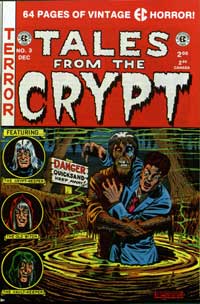 Horror, crime, and suspense comics became quite popular in the late 1940s and early 1950s. EC Comics, edited by Al Feldstein and Harvey Kurtzman, was one of the main publishers of this type of literature. The company published several highly popular titles, including Tales from the Crypt, Frontline Combat, Panic, and Shock SuspenStories.
Horror, crime, and suspense comics became quite popular in the late 1940s and early 1950s. EC Comics, edited by Al Feldstein and Harvey Kurtzman, was one of the main publishers of this type of literature. The company published several highly popular titles, including Tales from the Crypt, Frontline Combat, Panic, and Shock SuspenStories.
Sparked by the publication of Seduction of the Innocent by psychiatrist Frederic Wertham, movements to censor these types of comics began popping up around the country after World War II. Wertham claimed that children would be conditioned to emulate what they saw on the pages of the comics, and that an entire generation was at risk of moral and mental corruption because of their reading material. Congress held an official inquiry on comics and juvenile delinquency in 1954, and many cities throughout the country passed or considered municipal bans on comic books in general.
The Comics Code Authority
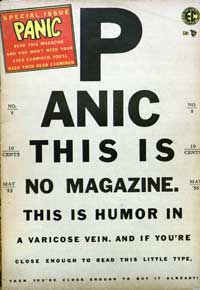 Fearing government regulation, the comics industry turned to self-censorship, forming the Comics Code Authority (CCA) in late 1954. The Code set a number of content and artistic standards, including the stipulation that good must always triumph over evil, a general ban on the words “horror” and “terror” in comic book titles, and strict guidelines for the handling of crime, race, sexuality, and political issues.
Fearing government regulation, the comics industry turned to self-censorship, forming the Comics Code Authority (CCA) in late 1954. The Code set a number of content and artistic standards, including the stipulation that good must always triumph over evil, a general ban on the words “horror” and “terror” in comic book titles, and strict guidelines for the handling of crime, race, sexuality, and political issues.
Although the CCA had no legal power, most distributors refused to carry comics without the CCA seal of approval. Some publishers adapted to the new regulations, while others went out of business. EC Comics cancelled all of its titles except for Mad magazine (which was not subject to the Code), and was later absorbed by DC Comics.
The Comics Code remained in effect as it was written in 1954 until it was challenged by Marvel over a Spider-Man cover in 1971. The Code’s authority began to break down in the late 1980s, but it remained in force with major publishers until Marvel officially abandoned the Code in 2001, and DC dropped it in 2011.
Underground Comics
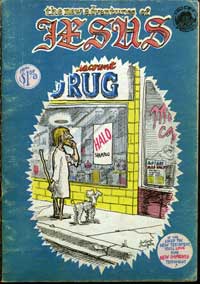 By the late 1960s, artists began exploring themes banned by the Code in self-published or small-press “underground” comics. Many were inspired directly by EC Comics, Mad, and the work of Harvey Kurtzman.
By the late 1960s, artists began exploring themes banned by the Code in self-published or small-press “underground” comics. Many were inspired directly by EC Comics, Mad, and the work of Harvey Kurtzman.
Frank Stack, an emeritus professor of art at MU, is credited with creating the first underground comic book when he published The Adventures of Jesus in 1964 under the pseudonym Foolbert Sturgeon. Artists such as Gilbert Shelton and R. Crumb also established the genre with publications such as The Fabulous Furry Freak Brothers and Fritz the Cat.
Crumb stated that the appeal of underground comics was their lack of censorship – and this is certainly expressed in their content. Many underground comics offer commentary on drug use, sex, racism, the anti-war movement, and women’s rights. These were all topics that could not easily be treated by mainstream comics publishers.
Book Banning Continues
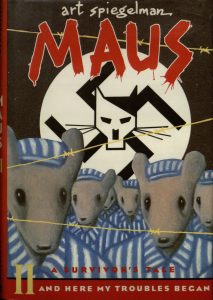 Comics and graphic novels of all genres, particularly those for children and teens, remain reading materials often targeted by bans. The American Library Association releases a yearly list of the top 10 most challenged books, and graphic novels often figure among them. Fun Home by Alison Bechdel, Genderqueer by Maia Kobabe, Persepolis by Marjane Satrapi, and, most recently, Maus by Art Spiegelman are all graphic novels that have been banned or challenged in public and school libraries. They and many others are represented in the Comic Art Collection in Special Collections, where they are available to all.
Comics and graphic novels of all genres, particularly those for children and teens, remain reading materials often targeted by bans. The American Library Association releases a yearly list of the top 10 most challenged books, and graphic novels often figure among them. Fun Home by Alison Bechdel, Genderqueer by Maia Kobabe, Persepolis by Marjane Satrapi, and, most recently, Maus by Art Spiegelman are all graphic novels that have been banned or challenged in public and school libraries. They and many others are represented in the Comic Art Collection in Special Collections, where they are available to all.
For more information about current attempts to ban books, see Mapping Censorship from the Banned Books Week website and the Comic Book Legal Defense Fund.
This post was originally written for Banned Books Week 2012 and was updated in January 2022.
Siri versus the Medieval Perpetual Calendar
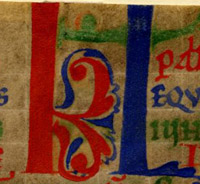 Are you tired of your Moleskine planner? Do Siri’s annoying reminders tax your nerves? Consider trying a medieval perpetual calendar and discover a more streamlined approach to managing your affairs.
Are you tired of your Moleskine planner? Do Siri’s annoying reminders tax your nerves? Consider trying a medieval perpetual calendar and discover a more streamlined approach to managing your affairs.
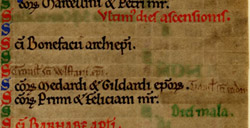 Among their many virtues is longevity: the same calendar can be used year in, year out, all the way up to the Second Coming. How is this possible? As our forebears knew, parchment is a durable medium that can withstand the insults of time and use. It is also well suited to accommodating the changing winds of orthodoxy. Should it be necessary to remove a feast from the calendar, simply scrape the pigment off, and no one will suspect your error. Should a new saint arrive on the scene, simply pencil in the feast day as someone has done for Saint Wulfstan using brown pigment in the calendar above from twelfth-century England.
Among their many virtues is longevity: the same calendar can be used year in, year out, all the way up to the Second Coming. How is this possible? As our forebears knew, parchment is a durable medium that can withstand the insults of time and use. It is also well suited to accommodating the changing winds of orthodoxy. Should it be necessary to remove a feast from the calendar, simply scrape the pigment off, and no one will suspect your error. Should a new saint arrive on the scene, simply pencil in the feast day as someone has done for Saint Wulfstan using brown pigment in the calendar above from twelfth-century England.
![]()
P![]() erpetual calendars are imminently portable. Tuck yours inside your breviary, where it be within reach at all times. Rise in your co-workers esteem by scheduling meetings according to the Julian calendar (left). Your coworkers will be impressed by your willingness to master a more complicated scheme of keeping track of dates, and you will soon have everyone trying to count the days forwards and backwards from Kalends, Ides and Nones.
erpetual calendars are imminently portable. Tuck yours inside your breviary, where it be within reach at all times. Rise in your co-workers esteem by scheduling meetings according to the Julian calendar (left). Your coworkers will be impressed by your willingness to master a more complicated scheme of keeping track of dates, and you will soon have everyone trying to count the days forwards and backwards from Kalends, Ides and Nones.
You will be the life of the party on New Year’s Eve, when, with a furtive glance, you can determine the dominical letter, for the upcoming year (right). Dominical letters are useful for determining the date of Easter, a service for which your friends and relations will no doubt be grateful.
Be the envy of everyone with your attractive, vintage planner. You might think the colors are there merely to delight the eye, but look again. Differentiate feast days of high-status saints from those of middling status. Color code astronomical events from those of a more cosmic nature. They serve the practical purpose of differentiating different kinds of events, as well as ranking them in importance. In the calendar we’ve been looking at, the feast of the Ascension, the feast day of Saint Barnabus, the sun’s entrance into cancer, the feast day of St. Aethelthryth, and a commemoration of Saint Paul the apostle are all given special distinction. Most astronomical information is recorded in green pigment.
Attractive, convenient, and durable, medieval perpetual calendars allow you to honor the past as you plan the future. They sit quietly inside your psalter or breviary without interrupting your classes. Get yours today!
Faculty Lecture Series: Sister Novelists in the Age of Austen
Date: Tues., Oct. 23, 2012
Time: 1 p.m.
Location: Ellis Library Colonnade
“Sister Novelists in the Age of Austen: Jane and Anna Maria Porter”
with Prof. Devoney Looser
Jane and Anna Maria Porter were celebrated novelists who, for many decades, were more famous than their contemporary Jane Austen. Why did the Porter sisters’ celebrity status dwindle, as Austen’s literary star rose? Devoney Looser, who is writing a biography of the Porter sisters, will share her findings about their fascinating and previously undocumented nineteenth-century lives, showing how (as Anna Maria Porter once put it) a female author’s public fame could be the death knell of her private happiness.
This event is free and open to the public.
More Power!
Please excuse the NOISE as we add more electrical outlets and data ports to the Veterinary Library. The disruption will be worth it! CVM – IT will soon be adding more computers to the library!
